“Look at the nations and watch and be utterly amazed. For I am going to do something in your days that you would not believe, even if you were told.” Habakkuk 1:5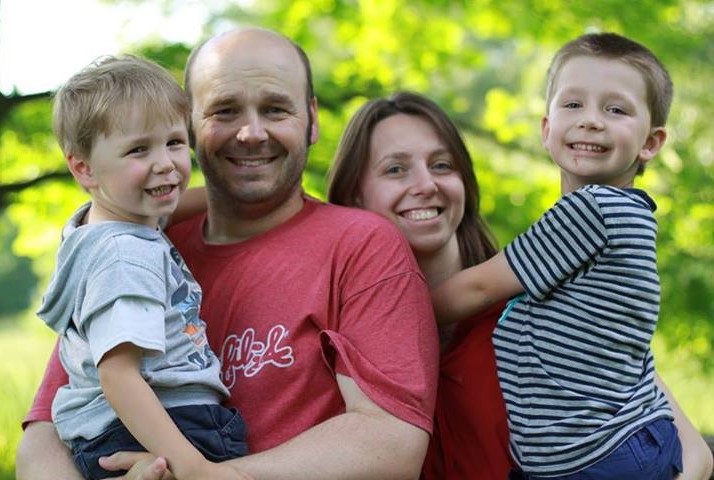
Today, in over 650 places worldwide, and on almost every continent, God is using what has become known as the Disciple Making Movements (DMM) or Church Planting Movements (CPM). It brings salvation to people who have never heard the Gospel before, and brings it to places where it has long been forgotten. A disciple-making movement is characterized by a rapidly multiplying increase of indigenous churches and disciples within a group or population segment. In short, we are seeing the book of Acts lived out today, all around the world – it is exciting!
How has DMM turned out to be an amazing strategy to bring in the harvest in nations all throughout the world and specifically in Poland? By simple obedience to the Word of God – the Bible! We read the words of Jesus, believe them, draw crucial principles and practice them. Our focus is on:
- Making disciples, not just converts (Matthew 28)
- Baptizing and teaching all the disciples to baptize
- Teaching to obey and not just listen to the Word
- Healing the sick, casting out demons and sending others to do the same
- Sharing the Gospel with boldness as a lifestyle everywhere
- Finding “the people and families of peace”.
- Intentionally working on going out and bringing the Kingdom to families, villages and towns; not pulling individuals out of their cultural contexts.
Angelika and I live and work in Warsaw, Poland, as a “movement catalyzer”. That weird terminology simply means we train believers to make disciples who make disciples, in obedience to the Word.
At the same time we go and share the Gospel and search for those called “people of peace” in the New Testament. People of peace are open to hearing the Word, accept our message, and invite us into their homes. When such a “person of peace” is found, we start a simple, reproducible Bible study which develops over time into a simple house church and quickly reproduces itself as new disciples are made.
But, before we talk more about the amazing things God is doing in Poland, we should talk about the elephant in the room “Why Poland?” Poland is 99.5% Roman Catholic. So, how does Poland fit the “unreached” picture?
The evangelical population of Poland is only 0.25%, which makes Poland as unreached as the Hmu people of Northern China, the Hindi of Myanmar or the Brao of Cambodia. In my 19 years in this country, I’ve come to call it “a cultural Catholicism”. The reality is, an average Pole has no understanding of the Scriptures and does not read it. Our experience is this: if someone is searching for true faith in a living God they don’t know where to find it. Angelika is a great example: she heard the Gospel for the first time when she was 18 and got saved right away. With only 0.25% of the population being Evangelical, and of those, a very small percentage actually shares their faith. The need for the Gospel here, and across all of Europe, is dire — but God is doing a new thing in Poland and we are very excited!
Let me give you an example of how a disciple-making movement starts: The other day, a wealthy business owner named George (not his real name) showed up at our door. He had been given our contact information through a mutual friend. He came to faith six months ago and was baptized. His wife, Rachel, got saved four months ago and was baptized last week. Standing in our living room, George said, “I am a Bible-believing Christian now. I don’t want to be in a system. I want to live out my faith. What can you do with me?” We told him about the importance of sharing the Gospel with his friends and family and that we could teach him and his wife to be a disciple of Christ who makes disciples. He immediately caught the vision of what God could and would do through him and his wife.
We offered to meet again to teach them how to do the Bible study with their friends who are searching for God. Even though we had already been talking for hours, Rachel said, “Teach us now so we can start this week!” This is the kind of passion we love to see and are seeing more often. So, we taught them.
The following Tuesday, they invited us to their apartment where they had gathered several families from their neighborhood to study the Bible. We led the first study to show them how, and that was the last one we led! Since then, George and Rachel have been leading the study by themselves and we have kept in contact with them to give them advice, encouragement or any other help needed.
Their excitement about their friends’ reaction to the Gospel has been exhilarating. And the best part? We have not been at the meetings! We help, but the Holy Spirt and the Scriptures are their most important teachers. God will multiply that group, as they teach their friends how to lead Bible study and as they, as disciples, make further disciples!
Bible study with friends at home may sound ordinary for an American, but for us seeing it happening in Poland, is so exiting! Poles never read the Bible by themselves, never pray out loud in their own words and never consider faith as something which should be lived out in everyday life outside of the Sunday mass.
We hear reports often of new groups having started. All Across Poland today, God is raising up an army of ordinary people who are obedient to the words of Jesus and dare to believe that what is written in the Bible is still true today. As someone comes to faith, often after a miracle is done in their lives, or after study of the Word, they are immediately led back out to lead others. They pray for healing, they baptize and do everything else which a believer is called and empowered to do! We do not make them wait to be “qualified” to be obedient to the Scriptures. We model obedience; assist them to do it themselves, watch them as they do it alone and then we move on to start the fire in new places and people groups.
Those new believers boldly and radically share the Gospel with their family, friends, at work, in the streets, and through social media.
Pawel is one of many examples of what we see happening in Poland. He was pursuing a career as a New Age life coach. He would travel the world to get involved in spiritual rituals. One day he watched a YouTube movie about the Gospel and the power of the Holy Spirit. Pawel contacted a Christian friend and coworker of ours who traveled with his wife to Pawel’s town and shared the Gospel with him. That day he received Christ, confessed his sins, got baptized in water, delivered from demons and baptized in the Holy Spirit.
The next day he got up and felt led by the Holy Spirit to burn all of his New Age books and material. Then, he went to the train station and began sharing the Gospel, but returned home, discouraged at “how hard it was.” He fell to his knees, asked God for boldness, and went back to continue sharing. He recorded his testimony and put it on social media where he gave his phone number and encouraged people to contact him. He stated he was no longer a New Age coach, but a follower of Jesus and could help others to become Jesus-followers, too. During the first three months of his walk with Jesus, he baptized 11 people. Today, Pawel no longer counts how many people he baptizes, but rather counts the number of disciple-making disciples he is training all over Poland.
This is God’s story in Poland today. We believe we are close to seeing multiple generations of house churches planted in streams all across the country. This means that one day, we will be able to say like the Apostle Paul, that the Gospel has covered all of Poland, no part has been missed!
R.K.’s CORNER
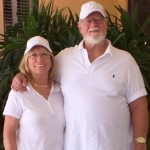 I met Paul and Gloria Booher and their two sons in the local church I began attend in the Fall of 1981 after I had moved from New York to Florida. Corey was then five years old. Paul had a heart for missions, and after the launch of The Bridge in 1983, he became very much part of its initial intercessory prayer group. A few years later, the Booher family moved out of town, and we more or less lost touch with them for several decades.
I met Paul and Gloria Booher and their two sons in the local church I began attend in the Fall of 1981 after I had moved from New York to Florida. Corey was then five years old. Paul had a heart for missions, and after the launch of The Bridge in 1983, he became very much part of its initial intercessory prayer group. A few years later, the Booher family moved out of town, and we more or less lost touch with them for several decades.
Four years ago, Paul and I intersected, again, with the result that he has, once again, become an integral part of The Bridge as head of the intercessory online prayer group for our field partners abroad. He told me that his son, Corey, now lives with his Polish wife, Angelika and their two sons in Warsaw, Poland, leading an exciting mission outreach. Their emphasis is not only on preaching the Gospel, but also on training people to be disciples of Jesus!
It is thrilling to learn that a new generation in Poland is coming to faith and demonstrating the Lordship of Christ, especially since, during the Communist era in the early eighties I crisscrossed Poland while distributing Bibles to the persecuted, underground, evangelical believers! They were few and far between! One sows, another waters, but it is God who gives the growth!
I have asked Corey to share with you a report on his life and ministry in Poland. Please mark gifts to the Boohers and their ministry “8350 Polish Workers”.

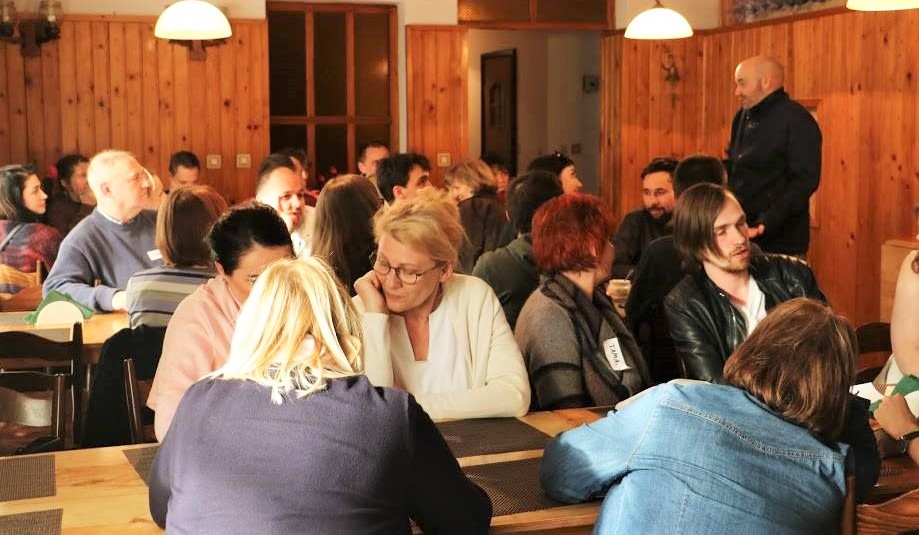
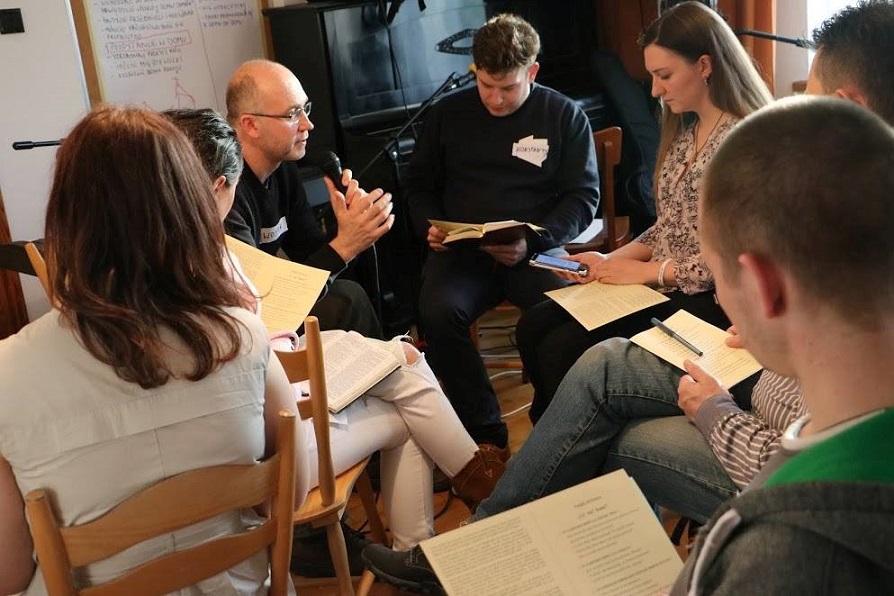
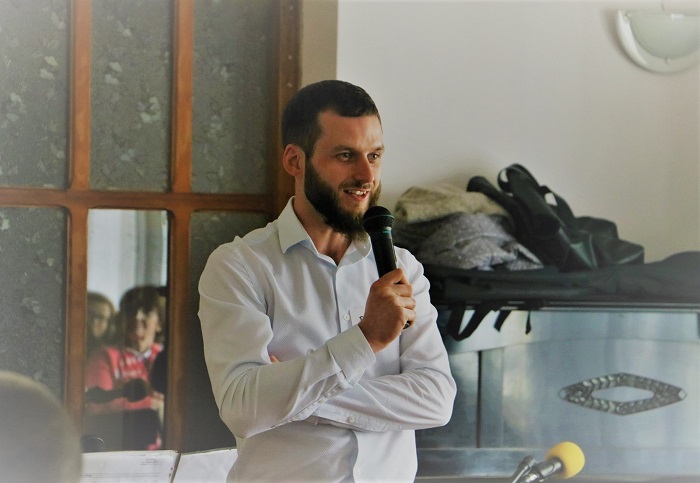
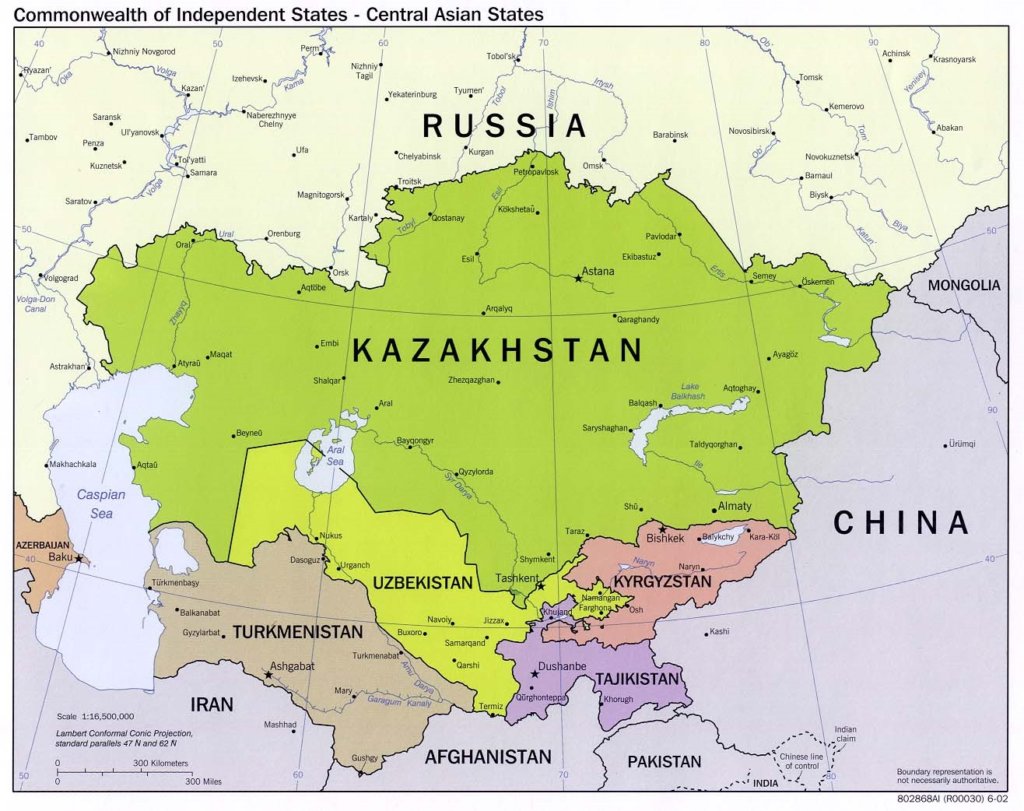 Central Asia includes the five republics of the former Soviet Union: Kazakhstan pop. 17.5 mill, Kyrgyzstan pop. 6 mill, Tajikistan pop. 8.5 mill, Turkmenistan pop. 5.4 mill, and Uzbekistan pop. 30.3 mill – a total population of almost 69 million. Afghanistan pop. 31.5 mill, is also sometimes included. Central Asia is historically tied to its nomadic, Turkish language-based peoples, of which there are 25 ethnic groups, and the Silk Road, which has acted as a crossroad for the movement of people, goods, and ideas between Europe, Western Asia, South Asia, and East Asia. In the 3rd – 4th Centuries, the region was Christian, evangelized by Nestorian, Assyrian missionaries, but later Buddhism and Islam became the dominant religions. Today, there are less than 3% Christians in Central Asia, including the Orthodox Church. They are increasingly being discriminated against by the authorities – Uzbekistan perhaps being the most restrictive country against Christian believers.
Central Asia includes the five republics of the former Soviet Union: Kazakhstan pop. 17.5 mill, Kyrgyzstan pop. 6 mill, Tajikistan pop. 8.5 mill, Turkmenistan pop. 5.4 mill, and Uzbekistan pop. 30.3 mill – a total population of almost 69 million. Afghanistan pop. 31.5 mill, is also sometimes included. Central Asia is historically tied to its nomadic, Turkish language-based peoples, of which there are 25 ethnic groups, and the Silk Road, which has acted as a crossroad for the movement of people, goods, and ideas between Europe, Western Asia, South Asia, and East Asia. In the 3rd – 4th Centuries, the region was Christian, evangelized by Nestorian, Assyrian missionaries, but later Buddhism and Islam became the dominant religions. Today, there are less than 3% Christians in Central Asia, including the Orthodox Church. They are increasingly being discriminated against by the authorities – Uzbekistan perhaps being the most restrictive country against Christian believers.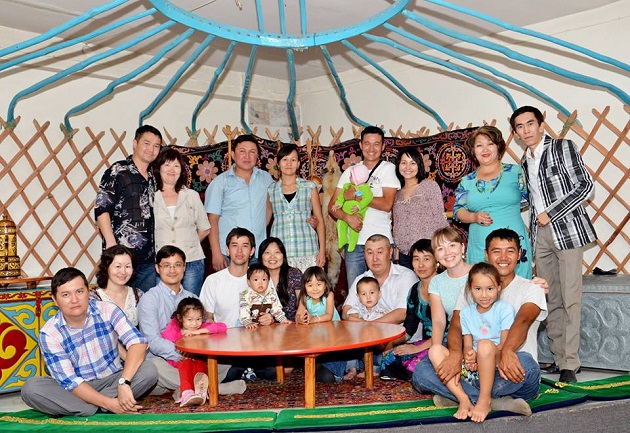 In June, my wife and I, and our two daughters had a great opportunity, to spend our vacation in a very special way. In the middle of June, we traveled from our northern city Karaganda to Almaty, located in southern Kazakhstan, near the Chinese border. We participated in a Turkish language speaking gathering of Pastors, (“kurultrai” in the Kazakh language), where national pastors and Christian leaders from Central Asia came together – from Kazakhstan, Uzbekistan, Kyrgyzstan, Tatarstan, Turkey, Azerbaijan, Mongolia, Karakalpakstan, and Christian leaders from the Uighur people.
In June, my wife and I, and our two daughters had a great opportunity, to spend our vacation in a very special way. In the middle of June, we traveled from our northern city Karaganda to Almaty, located in southern Kazakhstan, near the Chinese border. We participated in a Turkish language speaking gathering of Pastors, (“kurultrai” in the Kazakh language), where national pastors and Christian leaders from Central Asia came together – from Kazakhstan, Uzbekistan, Kyrgyzstan, Tatarstan, Turkey, Azerbaijan, Mongolia, Karakalpakstan, and Christian leaders from the Uighur people.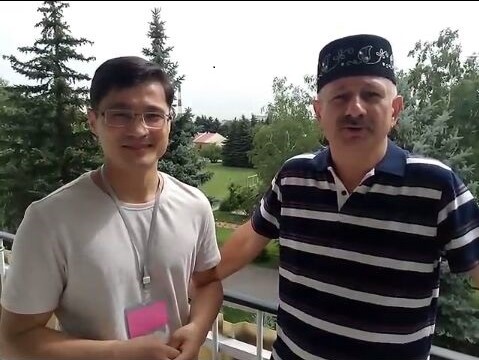 During our gathering there were so many great and powerful testimonies that touched our hearts. Some of the pastors and church leaders have been persecuted for their faith in Jesus Christ. They are experiencing opposition from their families, the authorities, Muslim leaders, and their neighbors. In spite of the many trials facing the followers of Isa (Jesus Christ), there is a deep hunger for God, so, the number of those coming to faith and learning to be disciples of Jesus, keeps growing!
During our gathering there were so many great and powerful testimonies that touched our hearts. Some of the pastors and church leaders have been persecuted for their faith in Jesus Christ. They are experiencing opposition from their families, the authorities, Muslim leaders, and their neighbors. In spite of the many trials facing the followers of Isa (Jesus Christ), there is a deep hunger for God, so, the number of those coming to faith and learning to be disciples of Jesus, keeps growing!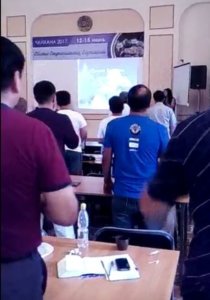 A leader from one of the Central Asian countries shared his testimony. He told us how God used persecution for His own glory. That man (let’s call him Omar) was imprisoned for 15 days for simply being a believer and being unable to pay a fine of 1.500.00 USD, which is the penalty for being a Christian and doing religious activities in this country. While in prison, he was placed in the same cell with an inmate who had been convicted of terrorism.
A leader from one of the Central Asian countries shared his testimony. He told us how God used persecution for His own glory. That man (let’s call him Omar) was imprisoned for 15 days for simply being a believer and being unable to pay a fine of 1.500.00 USD, which is the penalty for being a Christian and doing religious activities in this country. While in prison, he was placed in the same cell with an inmate who had been convicted of terrorism.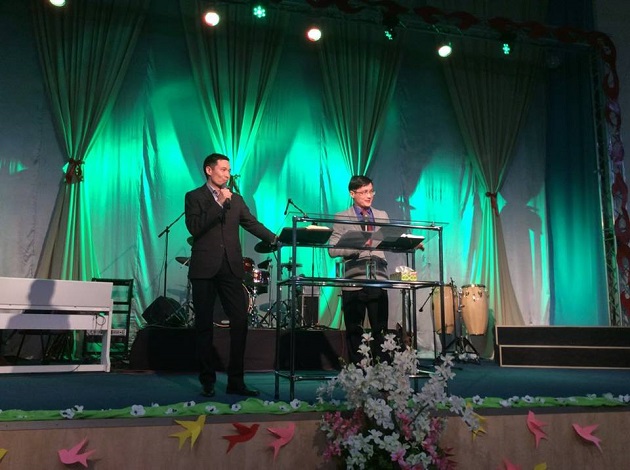 When Omar himself was released from jail, he was sternly warned by the authorities not to preach about Jesus. You all know how the Apostles in the Book Acts responded when they were threatened not to share their faith; they just continued to preach!
When Omar himself was released from jail, he was sternly warned by the authorities not to preach about Jesus. You all know how the Apostles in the Book Acts responded when they were threatened not to share their faith; they just continued to preach! 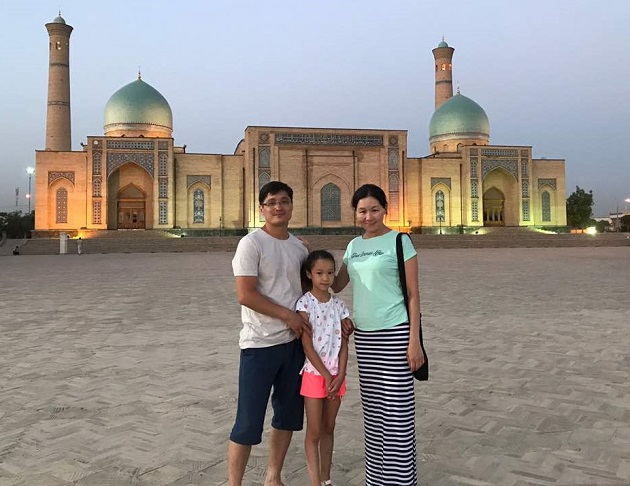 This was one of dozens of similar testimonies I heard in this conference. It proves that Central Asian believers are becoming more mature and eager to make disciples. Many of the them are working underground, due to safety issues for the believers and their families. Supernatural healing, visions and dreams are taking place in people’s lives, which also contribute to the spreading of the Gospel among Muslims, and the growth of the Church in Central Asia. This is the work of the Holy Spirit. I also strongly believe, it is due to the work of intercessor groups who have been faithfully praying without ceasing.
This was one of dozens of similar testimonies I heard in this conference. It proves that Central Asian believers are becoming more mature and eager to make disciples. Many of the them are working underground, due to safety issues for the believers and their families. Supernatural healing, visions and dreams are taking place in people’s lives, which also contribute to the spreading of the Gospel among Muslims, and the growth of the Church in Central Asia. This is the work of the Holy Spirit. I also strongly believe, it is due to the work of intercessor groups who have been faithfully praying without ceasing. 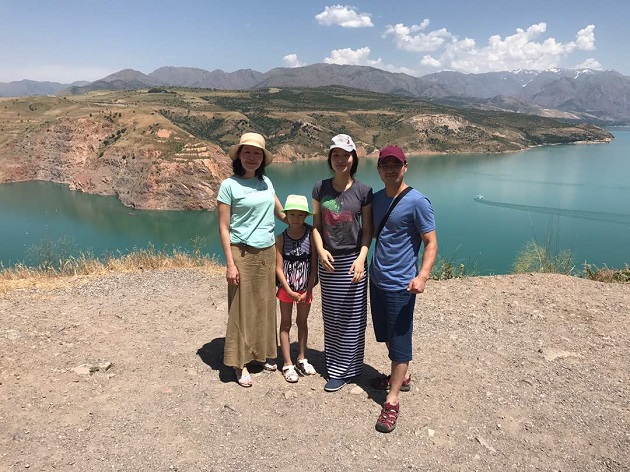
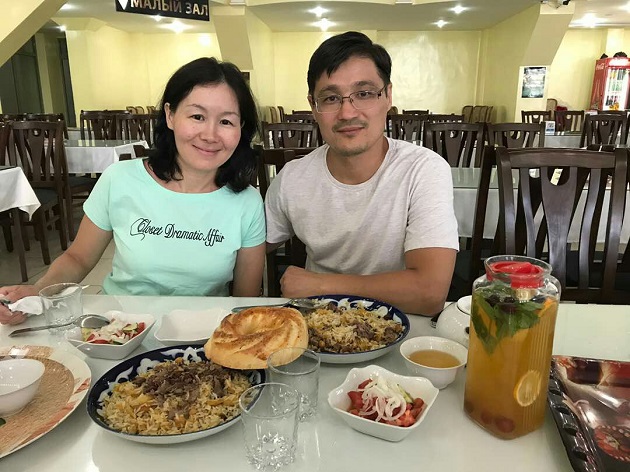
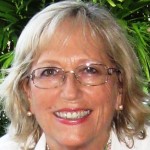 Those of you who have been with us throughout the years know that The Bridge has been active in supporting the Christian faith in Central Asia by partnering with a number of indigenous faith-based groups various countries It goes back as far as 1993, when we helped establish the first Bridge-sponsored Bible-based Leadership School with Agape Evangelical Center in the city of Almaty, Kazakhstan. Gradually, our ministry began serving other groups and individuals in other areas. One of them is Yermek Balykbekov.
Those of you who have been with us throughout the years know that The Bridge has been active in supporting the Christian faith in Central Asia by partnering with a number of indigenous faith-based groups various countries It goes back as far as 1993, when we helped establish the first Bridge-sponsored Bible-based Leadership School with Agape Evangelical Center in the city of Almaty, Kazakhstan. Gradually, our ministry began serving other groups and individuals in other areas. One of them is Yermek Balykbekov.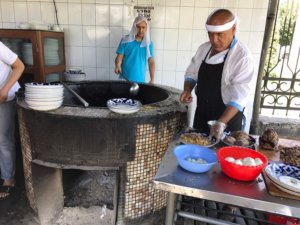
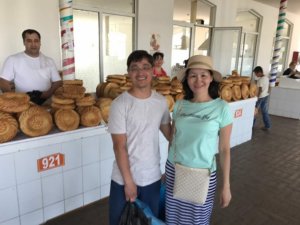
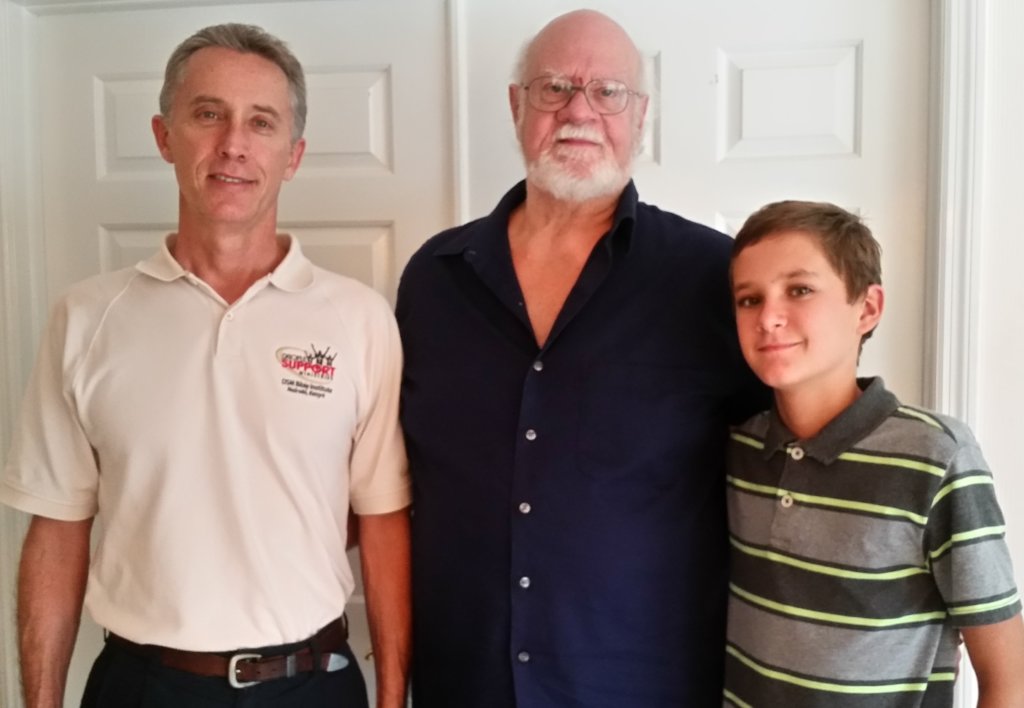 Today, those of us who publicly confess and openly live out our faith in Jesus Christ as His disciples in the midst of our contemporary society saturated by atheism, secular humanism, anti-Christian “activism” and political correctness, may be tempted to get discouraged. It’s difficult to follow Christ, even in our private lives. Acting Christ-like in public will typically get you a strange stare, if not outright ridicule or arrest. Use the name of “Jesus” and you’ll be risking a riot.
Today, those of us who publicly confess and openly live out our faith in Jesus Christ as His disciples in the midst of our contemporary society saturated by atheism, secular humanism, anti-Christian “activism” and political correctness, may be tempted to get discouraged. It’s difficult to follow Christ, even in our private lives. Acting Christ-like in public will typically get you a strange stare, if not outright ridicule or arrest. Use the name of “Jesus” and you’ll be risking a riot.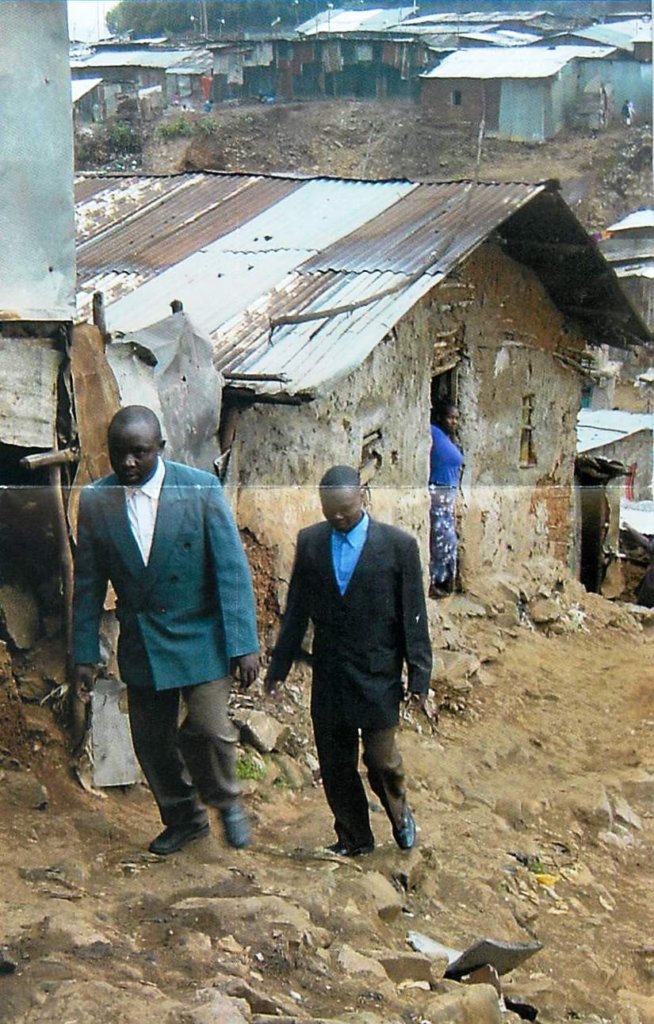 In the slums, this great Spiritual Conflict is readily apparent. The Pastors of the slums confront such contradictions daily. If they faithfully follow Christ, they contravene much of the common Culture. Poverty has as culture of its own, seeped in deceit, dependency and vicious competition. In extreme poverty, things that would normally assault our spiritual senses quickly become “culturally acceptable” and are swept under the carpet of carnal convenience.
In the slums, this great Spiritual Conflict is readily apparent. The Pastors of the slums confront such contradictions daily. If they faithfully follow Christ, they contravene much of the common Culture. Poverty has as culture of its own, seeped in deceit, dependency and vicious competition. In extreme poverty, things that would normally assault our spiritual senses quickly become “culturally acceptable” and are swept under the carpet of carnal convenience.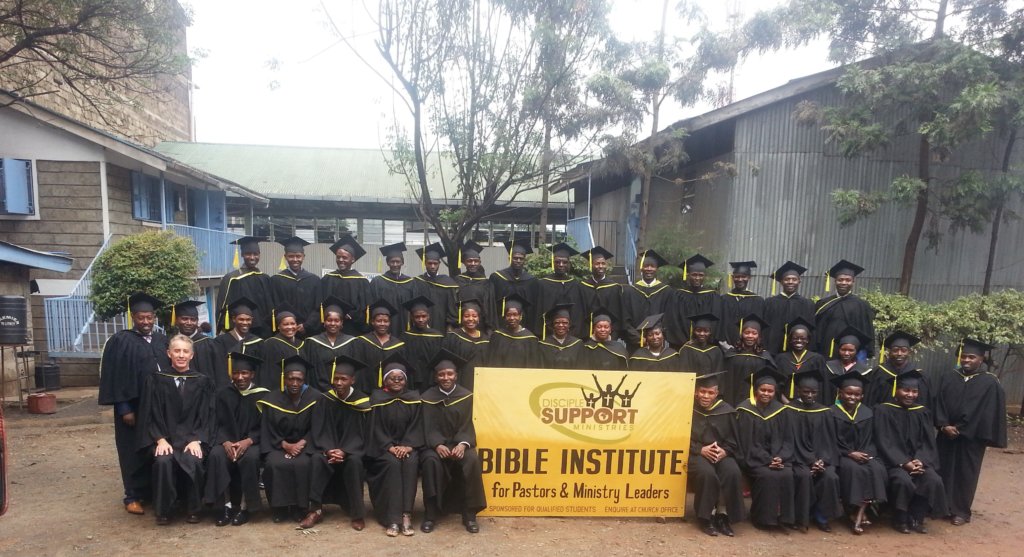 Our Pastors minister in conditions of extreme material poverty, yet God still requires them to rise to the occasion as representatives of Christ.
Our Pastors minister in conditions of extreme material poverty, yet God still requires them to rise to the occasion as representatives of Christ. 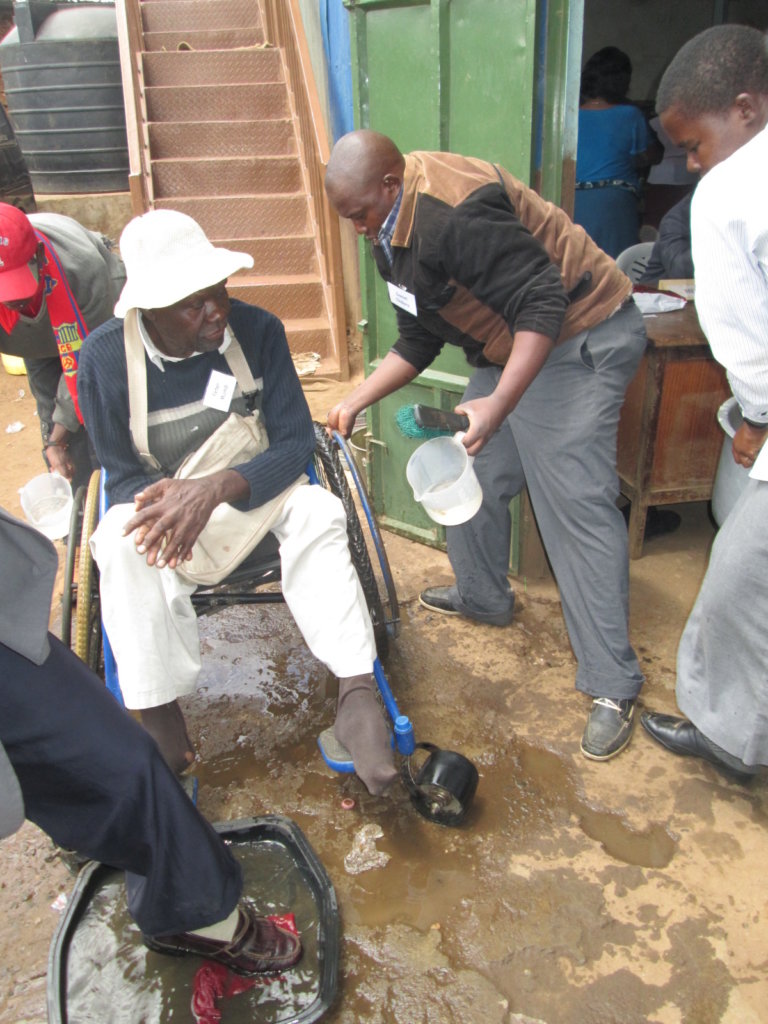 The man in the wheelchair is Peter. He has no use of his legs, and limited use of only one hand since birth. He has lived a life of being shunned. He learned to read and write at home, because no school would accept him as a child. He attends a popular church, but due to his infirmity, they will not let him do more than attend the church and receive his tithes. He is not permitted to serve in any capacity, due solely to his visible disability. He lives in a neighborhood that is not his tribal community, because he has been rejected by his own family and his clan. He lives among the poorest of the poor in a place that is the very bottom of the slum housing hierarchy. He knows what it means to be “outside the camp. He was “outside the camp” and that is where Jesus expects us to minister.
The man in the wheelchair is Peter. He has no use of his legs, and limited use of only one hand since birth. He has lived a life of being shunned. He learned to read and write at home, because no school would accept him as a child. He attends a popular church, but due to his infirmity, they will not let him do more than attend the church and receive his tithes. He is not permitted to serve in any capacity, due solely to his visible disability. He lives in a neighborhood that is not his tribal community, because he has been rejected by his own family and his clan. He lives among the poorest of the poor in a place that is the very bottom of the slum housing hierarchy. He knows what it means to be “outside the camp. He was “outside the camp” and that is where Jesus expects us to minister. 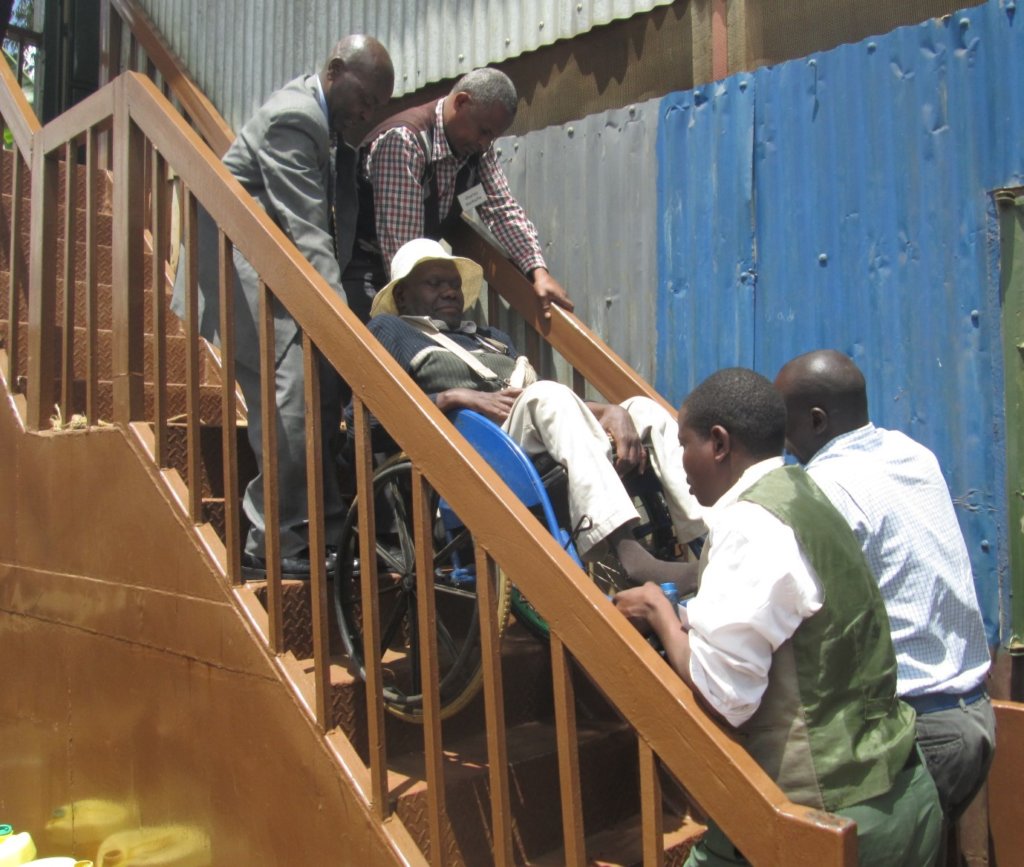 The Pastors welcomed Peter heartily! They greeted him with the genuine and sincere enthusiasm I would expect from a Christian, but would not expect from the Culture. They then did what Jesus would do, they washed not just his feet, but his mud encrusted wheelchair! They carried him up the steep and narrow Bible School steps in his wheelchair. They carried him down at every break, and back up, again. It takes four grown men much effort to do so. And then they pushed, pulled and mostly carried him every step of the muddy way back to his shack in the worst corner of the slum.
The Pastors welcomed Peter heartily! They greeted him with the genuine and sincere enthusiasm I would expect from a Christian, but would not expect from the Culture. They then did what Jesus would do, they washed not just his feet, but his mud encrusted wheelchair! They carried him up the steep and narrow Bible School steps in his wheelchair. They carried him down at every break, and back up, again. It takes four grown men much effort to do so. And then they pushed, pulled and mostly carried him every step of the muddy way back to his shack in the worst corner of the slum.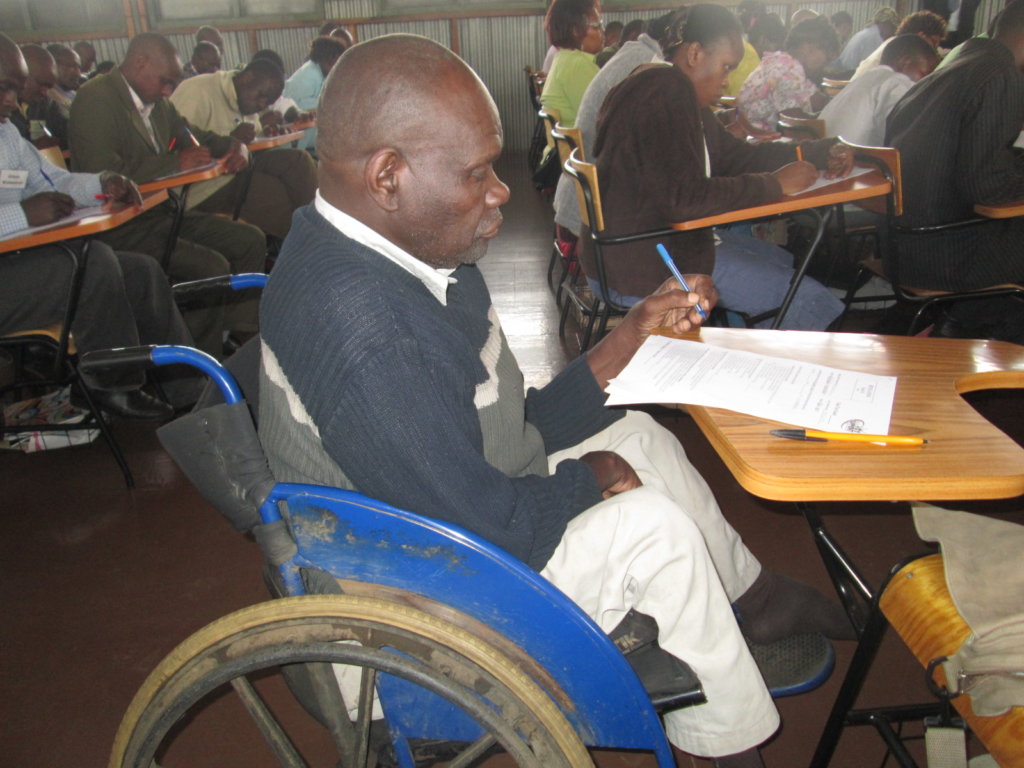 In the final analysis, it just doesn’t matter what is going on around us the depravity, the antagonism, the opposition or discouragements of the current Culture. When in doubt, just do what Jesus did. Wash feet. But not just any tidy, acceptable or obvious feet nearby. Even “culturally-relevant” do-gooders do that much.
In the final analysis, it just doesn’t matter what is going on around us the depravity, the antagonism, the opposition or discouragements of the current Culture. When in doubt, just do what Jesus did. Wash feet. But not just any tidy, acceptable or obvious feet nearby. Even “culturally-relevant” do-gooders do that much.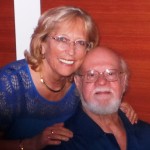 Last week, Steve and I had a delightful visit from Kenya by Paul Cowley and his 14 year old son, Isaac. Paul gave us updates from the mission field where he, with his wife, Marcia, and their three children, have served among the poorest of the poor.
Last week, Steve and I had a delightful visit from Kenya by Paul Cowley and his 14 year old son, Isaac. Paul gave us updates from the mission field where he, with his wife, Marcia, and their three children, have served among the poorest of the poor.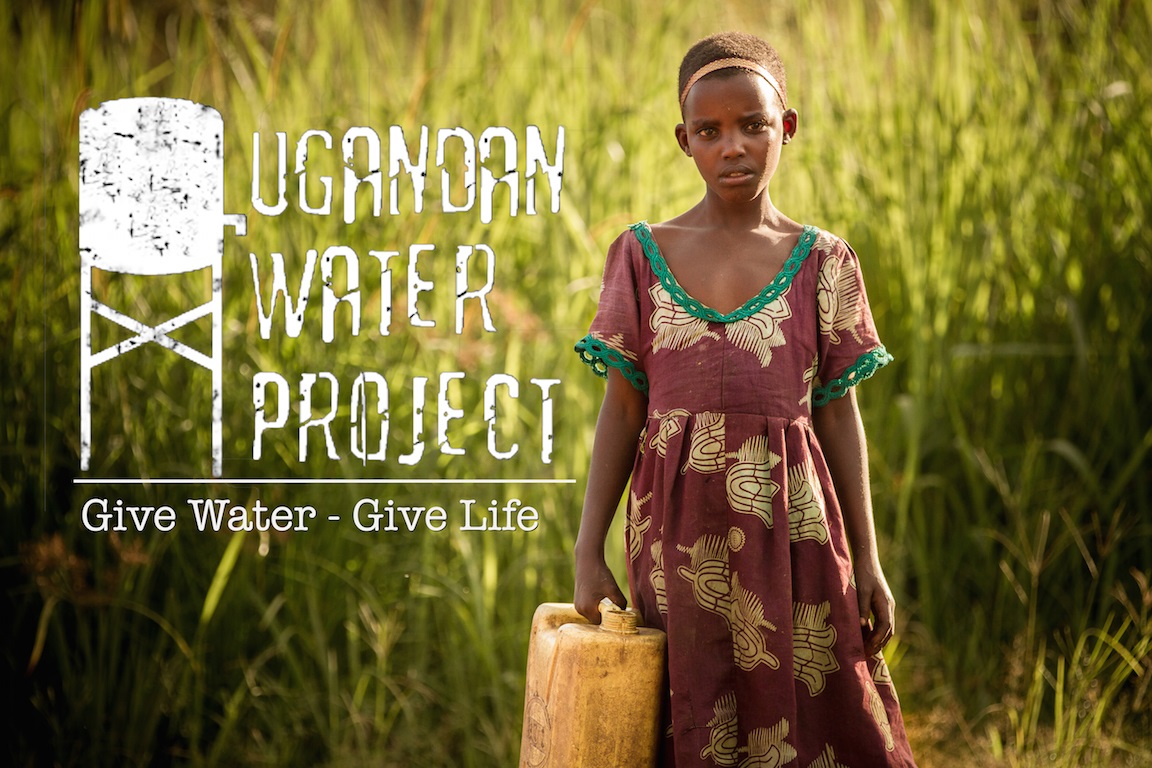
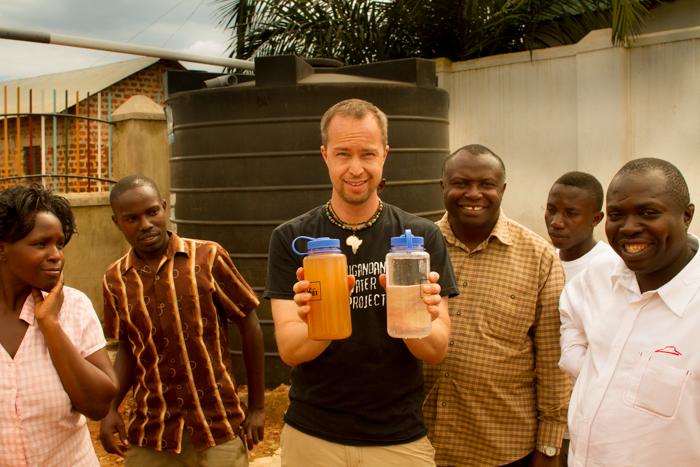 That first encounter left me productively disturbed. In August of 2008, after a year of learning, planning, and fundraising – five friends and I traveled to Uganda and saw the first two Rainwater Collection Systems installed on rural churches in Uganda, marking the beginning of the Ugandan Water Project. Since those first projects, we have continued to grow. The Ugandan Water Project now works in over 350 communities and has brought clean water to more than 155,000 people.
That first encounter left me productively disturbed. In August of 2008, after a year of learning, planning, and fundraising – five friends and I traveled to Uganda and saw the first two Rainwater Collection Systems installed on rural churches in Uganda, marking the beginning of the Ugandan Water Project. Since those first projects, we have continued to grow. The Ugandan Water Project now works in over 350 communities and has brought clean water to more than 155,000 people. 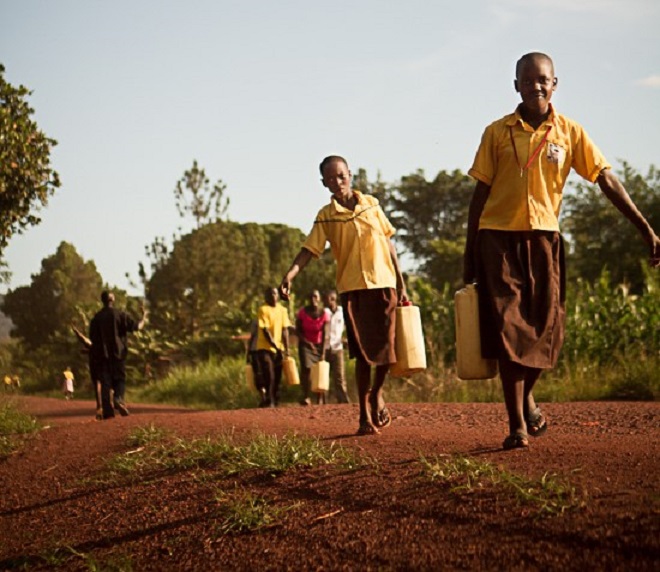 UWP employs a staff of 13 in Uganda (mostly Ugandan nationals) where we implement 3 primary solutions: Rainwater Collection Systems, Borehole Well Rehabilitation, and Water Filter Distribution. Sanitation and hygiene projects are beginning to take a larger role as well. Our projects focus on strengthening communities by resourcing schools, churches, clinics, and other foundational centers of local life.
UWP employs a staff of 13 in Uganda (mostly Ugandan nationals) where we implement 3 primary solutions: Rainwater Collection Systems, Borehole Well Rehabilitation, and Water Filter Distribution. Sanitation and hygiene projects are beginning to take a larger role as well. Our projects focus on strengthening communities by resourcing schools, churches, clinics, and other foundational centers of local life.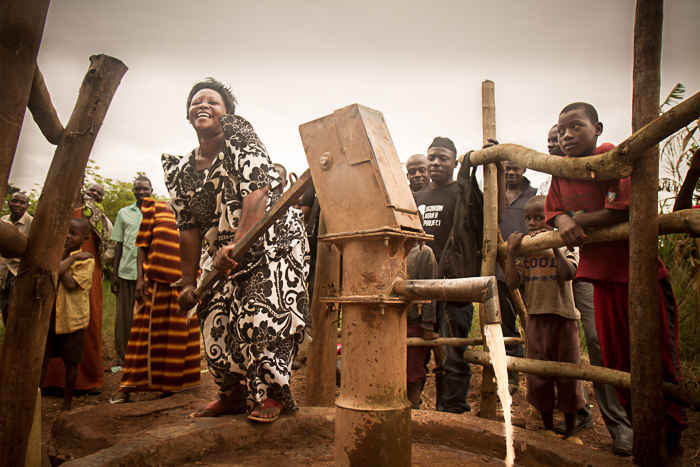 The past ten years has been harder than I would have ever guessed, but from where we stand now, I believe the future impact we will have, is greater than we can imagine. Our vision rings louder and resonates deeper than when we first began:
The past ten years has been harder than I would have ever guessed, but from where we stand now, I believe the future impact we will have, is greater than we can imagine. Our vision rings louder and resonates deeper than when we first began: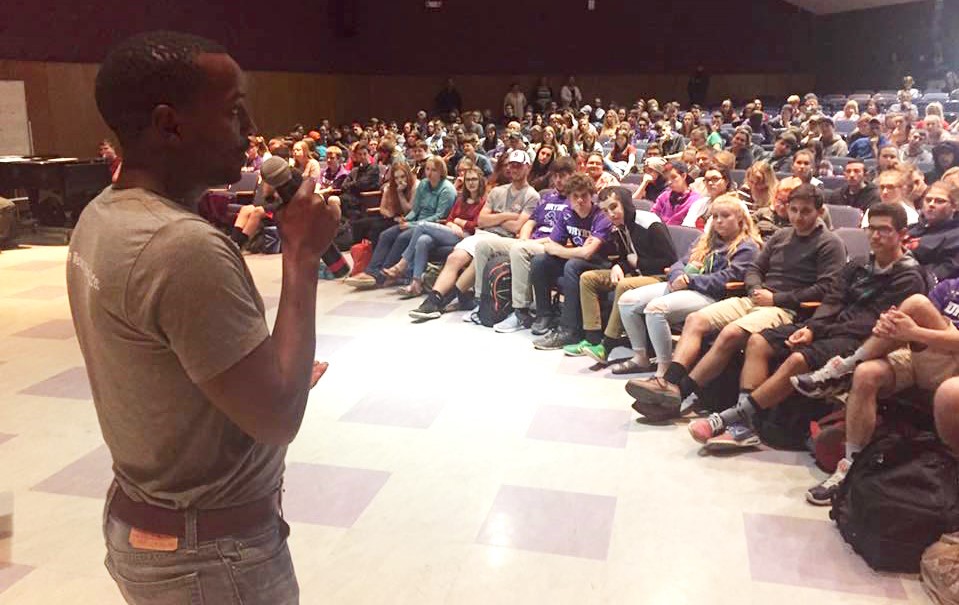 One of the great opportunities the Ugandan Water Project saw from the start, was the opportunity to partner with schools and colleges. Anchored to the cause of clean water for Ugandans, and driven by the values at the center of our Christian faith – we knew that service, self-sacrifice, compassion and other themes would resonate even in environments where incorporated Christianity isn’t welcome.
One of the great opportunities the Ugandan Water Project saw from the start, was the opportunity to partner with schools and colleges. Anchored to the cause of clean water for Ugandans, and driven by the values at the center of our Christian faith – we knew that service, self-sacrifice, compassion and other themes would resonate even in environments where incorporated Christianity isn’t welcome. 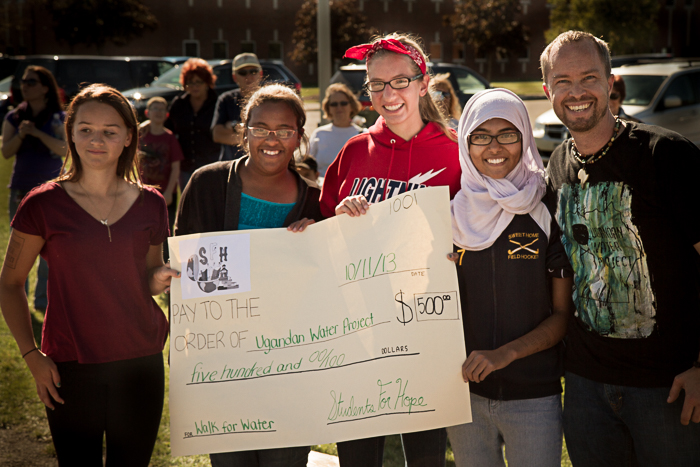 College campuses have been another arena for amazing impact. Water:Now is an event built on the assumption that God has designed us with far more capacity and power than we realize and that if a person could catch a glimpse of their real God-given-potential it could change their life. UWP partners with Christian student groups to host an evening on campus where clubs, organizations, teams, Greek life, and the general student body are invited to come learn about UWP and change the world. When students arrive, they are invited to participate in the audacious challenge to fund a water project for a specific school in Uganda ($3,000-$5,000) . . . in 1 hour. The result is something between a flash mob and a telethon. As the timer counts down, students reach out through various platforms to ask friends and family to make right-now-donations. It often comes down to the very last seconds, but to-date, the goal has been met, every time! The final challenge comes amidst celebration – reminding students that they have 24 hours in every day and now that they have seen what they could do with just one – dream new dreams and take bold action to change this world for the better.
College campuses have been another arena for amazing impact. Water:Now is an event built on the assumption that God has designed us with far more capacity and power than we realize and that if a person could catch a glimpse of their real God-given-potential it could change their life. UWP partners with Christian student groups to host an evening on campus where clubs, organizations, teams, Greek life, and the general student body are invited to come learn about UWP and change the world. When students arrive, they are invited to participate in the audacious challenge to fund a water project for a specific school in Uganda ($3,000-$5,000) . . . in 1 hour. The result is something between a flash mob and a telethon. As the timer counts down, students reach out through various platforms to ask friends and family to make right-now-donations. It often comes down to the very last seconds, but to-date, the goal has been met, every time! The final challenge comes amidst celebration – reminding students that they have 24 hours in every day and now that they have seen what they could do with just one – dream new dreams and take bold action to change this world for the better.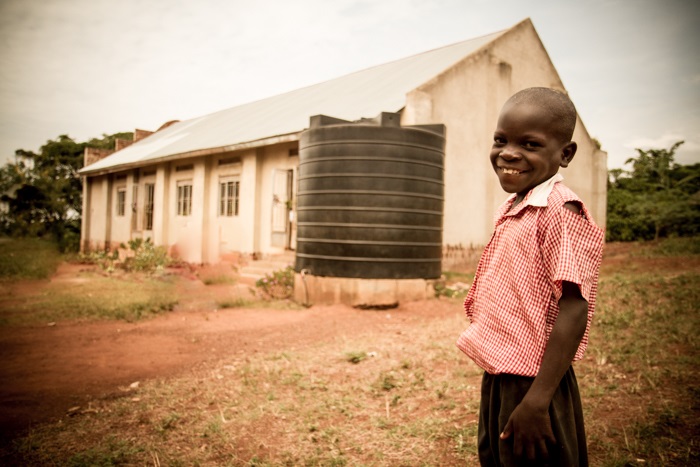 One example of this is the evolution of UWP’s Rainwater Collection Systems. These projects began as simple plastic tanks fed by gutters from community buildings. Declaring the slogan, “Always Learning!” the staff and volunteers began step by step isolating and improving each part of the process – solving problems, updating materials, investing in training, purchasing tools, and above all, learning from others around the world. The result is that today’s Rainwater Collection Systems are recognized as the best available version in Uganda.
One example of this is the evolution of UWP’s Rainwater Collection Systems. These projects began as simple plastic tanks fed by gutters from community buildings. Declaring the slogan, “Always Learning!” the staff and volunteers began step by step isolating and improving each part of the process – solving problems, updating materials, investing in training, purchasing tools, and above all, learning from others around the world. The result is that today’s Rainwater Collection Systems are recognized as the best available version in Uganda. 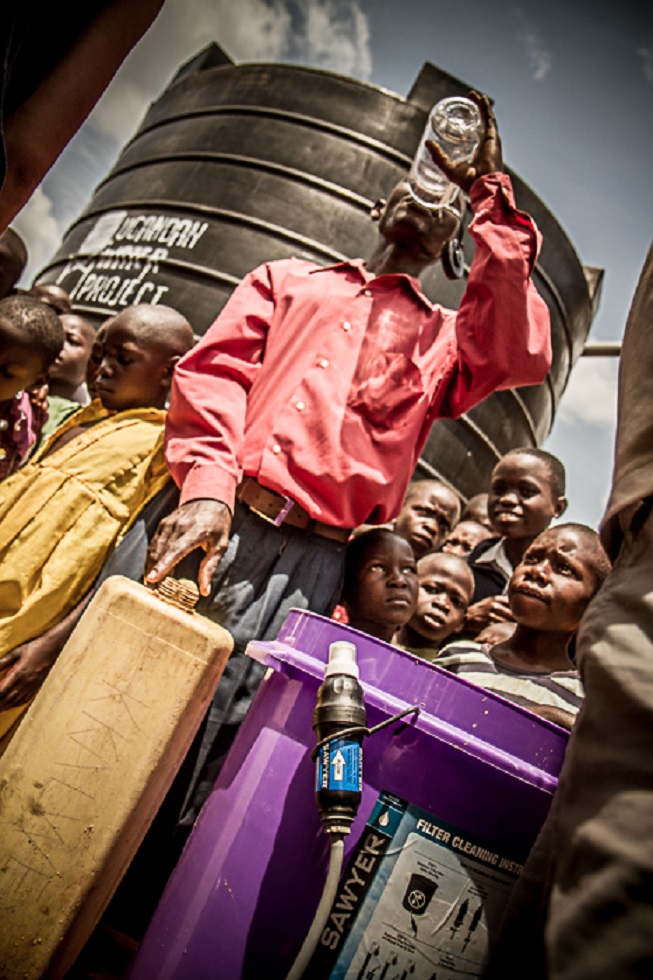 The organization committed 18 months of research and design to their M&E strategy and in May of 2016 launched a cloud-based set of data tools with partner, mWater. Now the organization tracks various indicators and can see proof that clean water in a community increase the number of girls in school; and that clean water at a school increases test scores dramatically. They can also prove that church growth directly correlates with a church bringing clean water to their community.
The organization committed 18 months of research and design to their M&E strategy and in May of 2016 launched a cloud-based set of data tools with partner, mWater. Now the organization tracks various indicators and can see proof that clean water in a community increase the number of girls in school; and that clean water at a school increases test scores dramatically. They can also prove that church growth directly correlates with a church bringing clean water to their community.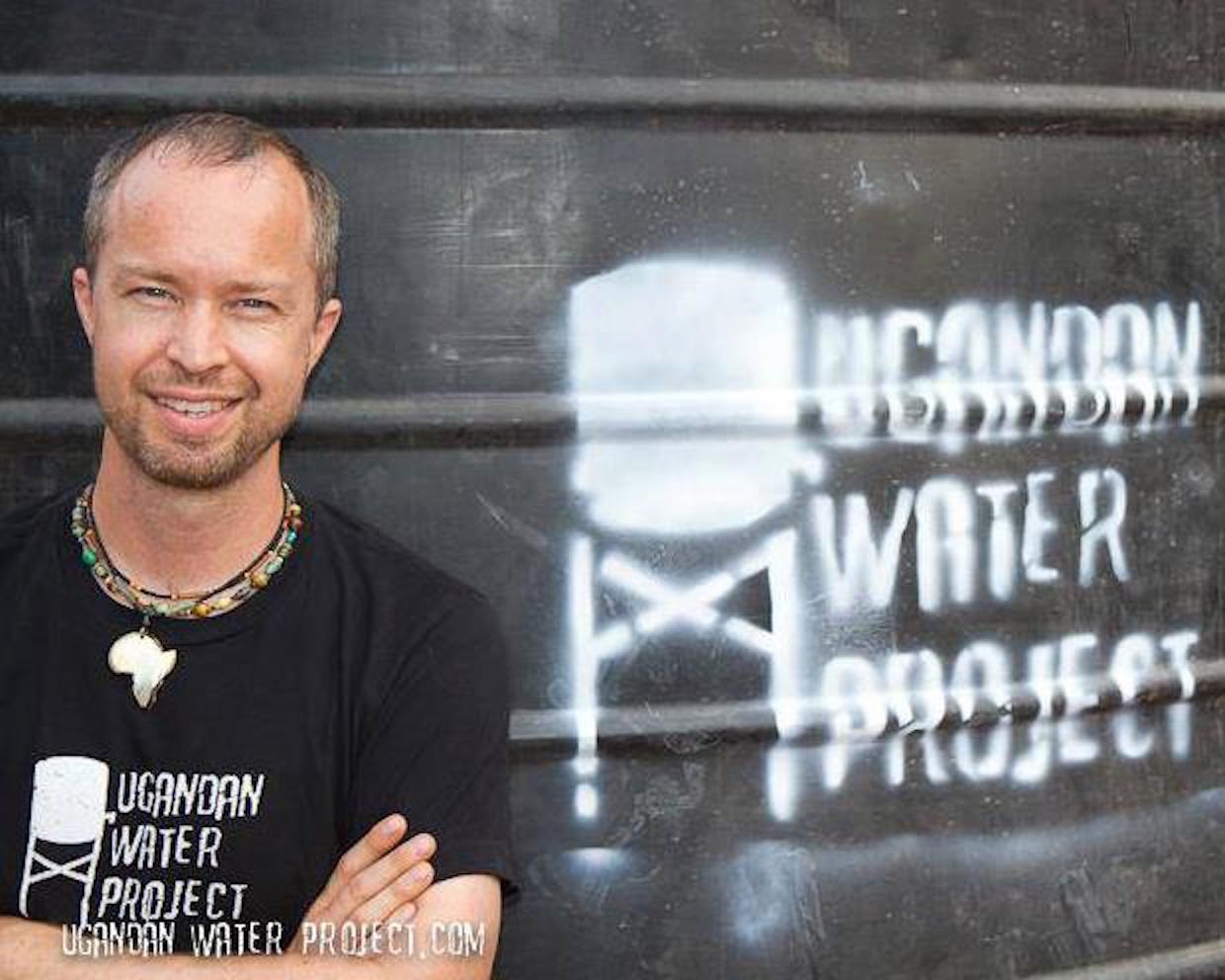
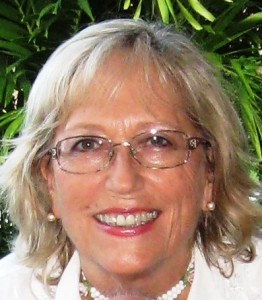 The first time I laid eyes on James Harrington was in 1975. I had just moved to Upstate New York where I had helped establish and administrated a private elementary/junior high school in the Ithaca area. James was then a newborn, son of one of my colleagues at the school. I watched him grow up during his early boyhood. In his mid twenties he married Christy, a businesswoman in her own right, and together, they have raised three beautiful daughters; the oldest is now 18.
The first time I laid eyes on James Harrington was in 1975. I had just moved to Upstate New York where I had helped establish and administrated a private elementary/junior high school in the Ithaca area. James was then a newborn, son of one of my colleagues at the school. I watched him grow up during his early boyhood. In his mid twenties he married Christy, a businesswoman in her own right, and together, they have raised three beautiful daughters; the oldest is now 18. by Terri Ellis
by Terri Ellis Threads of Hope, or Hilos de Esperanza, started on the island of Ometepe, Nicaragua. This volcanic island of about 45,000 people is located in southwest Nicaragua by Lake Nicaragua. The inhabitants are primarily agricultural farmers or make a living in association with the tourist business. The average income is approximately $400 per year. Many are very poor.
Threads of Hope, or Hilos de Esperanza, started on the island of Ometepe, Nicaragua. This volcanic island of about 45,000 people is located in southwest Nicaragua by Lake Nicaragua. The inhabitants are primarily agricultural farmers or make a living in association with the tourist business. The average income is approximately $400 per year. Many are very poor.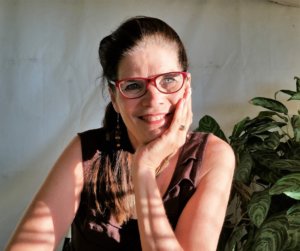 It was here, when I first accompanied a short term mission trip from my church in Louisville, KY that I began to ask God how He could use my skills in sewing, business, and my love for Christ to change the culture of the island of Ometepe … spiritually, socially, economically, and even politically. How could the hope found in Christ conquer the sin entrenched culture of this enclosed society and be replaced with abundant life reflective of a culture and lifestyle based on Biblical values? How could something as innocuous as SEWING be part of God’s tool? This is my quest, my hope and visionary partnership with God… to sew and sow towards the rulership of the King and the furthering of His Kingdom on Isla de Ometepe, Nicaragua.
It was here, when I first accompanied a short term mission trip from my church in Louisville, KY that I began to ask God how He could use my skills in sewing, business, and my love for Christ to change the culture of the island of Ometepe … spiritually, socially, economically, and even politically. How could the hope found in Christ conquer the sin entrenched culture of this enclosed society and be replaced with abundant life reflective of a culture and lifestyle based on Biblical values? How could something as innocuous as SEWING be part of God’s tool? This is my quest, my hope and visionary partnership with God… to sew and sow towards the rulership of the King and the furthering of His Kingdom on Isla de Ometepe, Nicaragua.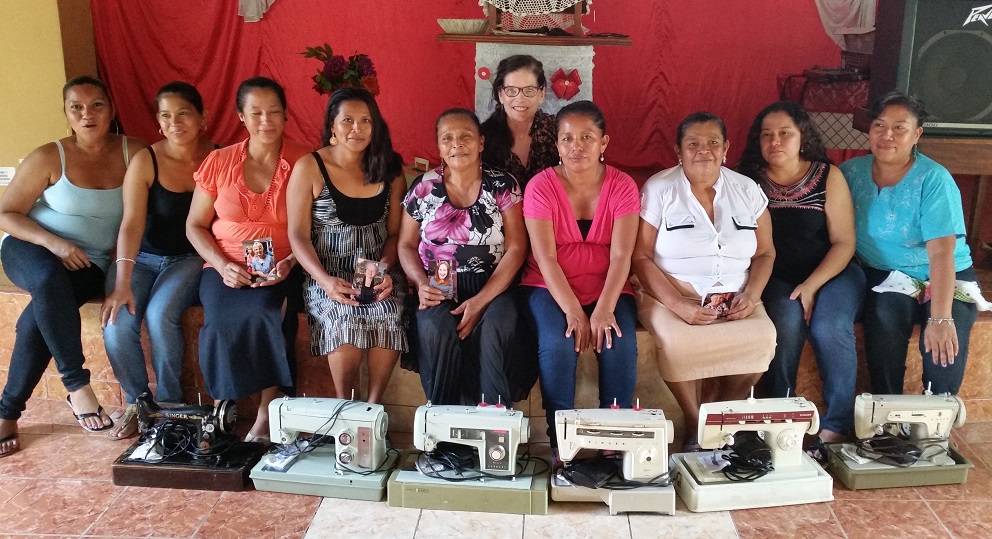 One of the distinguishing characteristics of Threads of Hope is that we work directly with local island churches who would like to use sewing as a missionary tool to reach un-churched people in their community. Many women would like to learn to sew and are eager to come to a sewing class even if it’s at a church. As they gather to learn the life-skill of sewing, friendships are developed. The sharing of scripture and offerings of prayer are part of every class as conversations of everyday joys and hardships unfold around the sewing table.
One of the distinguishing characteristics of Threads of Hope is that we work directly with local island churches who would like to use sewing as a missionary tool to reach un-churched people in their community. Many women would like to learn to sew and are eager to come to a sewing class even if it’s at a church. As they gather to learn the life-skill of sewing, friendships are developed. The sharing of scripture and offerings of prayer are part of every class as conversations of everyday joys and hardships unfold around the sewing table.
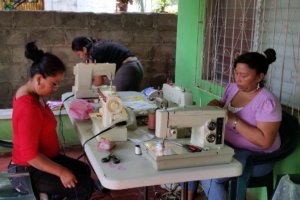 Currently, classes are offered in six week sessions at three different church sites and one missionary center with hopes to eventually reach all towns on the island. At the session end, the church invites new women to attend a new class to learn to sew, make friends and carry the gospel message planted in her heart back to her family.
Currently, classes are offered in six week sessions at three different church sites and one missionary center with hopes to eventually reach all towns on the island. At the session end, the church invites new women to attend a new class to learn to sew, make friends and carry the gospel message planted in her heart back to her family.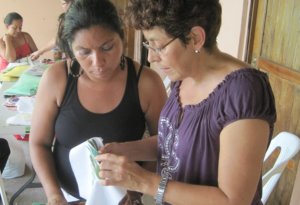 The ministry promotes personal responsibility by requiring each woman to pay a small, but reasonable amount, for the full set of classes. If she attends all classes, her responsible attendance is rewarded with the return of her payment! Faithfulness is rewarded and the ministry then pays the teacher in her stead, reflecting Christ’s willingness to pay the cost for others. Further lessons continue to require a payment from the woman either in the form of money or bartered services. Our ministry strives to reflect that all which is received as valuable, has a cost that must be paid.
The ministry promotes personal responsibility by requiring each woman to pay a small, but reasonable amount, for the full set of classes. If she attends all classes, her responsible attendance is rewarded with the return of her payment! Faithfulness is rewarded and the ministry then pays the teacher in her stead, reflecting Christ’s willingness to pay the cost for others. Further lessons continue to require a payment from the woman either in the form of money or bartered services. Our ministry strives to reflect that all which is received as valuable, has a cost that must be paid.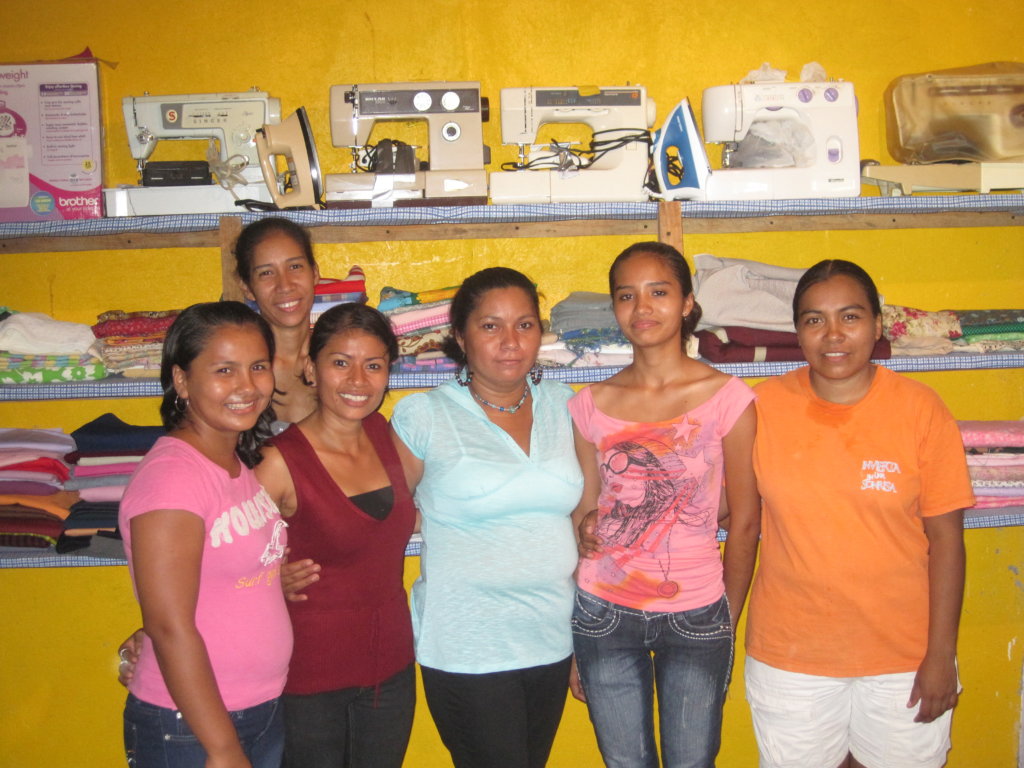 Women of many countries hope for and dream of owning an electric sewing machine of their own. They know that a sewing machine would allow them to make and repair clothing for their family and would also allow them to potentially earn extra essential income. However, a sewing machine is not a basic necessity of life, and though Threads of Hope offers used machines for sale at a very nominal cost, for most women owning a sewing machine will always be a hope left unfulfilled in their heart.
Women of many countries hope for and dream of owning an electric sewing machine of their own. They know that a sewing machine would allow them to make and repair clothing for their family and would also allow them to potentially earn extra essential income. However, a sewing machine is not a basic necessity of life, and though Threads of Hope offers used machines for sale at a very nominal cost, for most women owning a sewing machine will always be a hope left unfulfilled in their heart.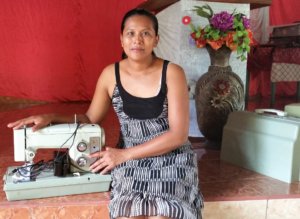 The sponsor program receives funds from donors who would like to sponsor a women who wishes to “buy” a machine from the ministry. The applicant completes a request for a machine and agrees to an individualized contract between herself and Threads of Hope. By giving a set amount of time, along with specific service to her community, AND attending 12 sewing classes, she can earn a sewing machine of her very own. To date, more than 25 sewing machines have been earned from our program.
The sponsor program receives funds from donors who would like to sponsor a women who wishes to “buy” a machine from the ministry. The applicant completes a request for a machine and agrees to an individualized contract between herself and Threads of Hope. By giving a set amount of time, along with specific service to her community, AND attending 12 sewing classes, she can earn a sewing machine of her very own. To date, more than 25 sewing machines have been earned from our program. 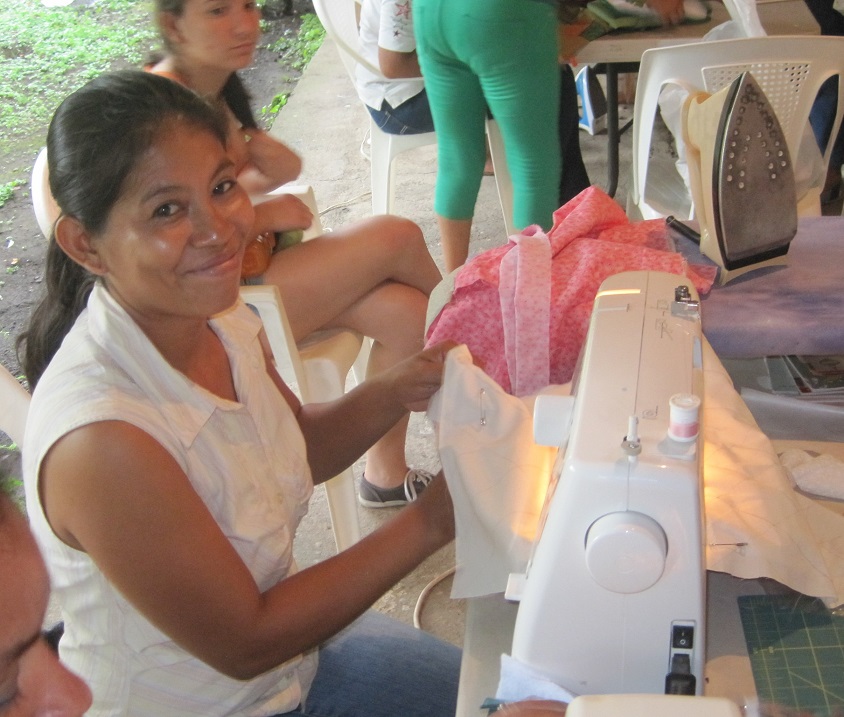 The HOPE of a sewing machine is being realized and God-pleasing lifestyle habits are practiced. The culture of Ometepe IS being affected socially!
The HOPE of a sewing machine is being realized and God-pleasing lifestyle habits are practiced. The culture of Ometepe IS being affected socially! With sewing, our ministry seeks to draw out a woman’s God-given creative identity, give her a skill to better serve her family’s clothing and home needs and, as her skills are perfected, offer ideas and opportunities to earn money from the sale of sewn products. To date, women are now earning money from their home repairing clothing. Cottage industries!
With sewing, our ministry seeks to draw out a woman’s God-given creative identity, give her a skill to better serve her family’s clothing and home needs and, as her skills are perfected, offer ideas and opportunities to earn money from the sale of sewn products. To date, women are now earning money from their home repairing clothing. Cottage industries!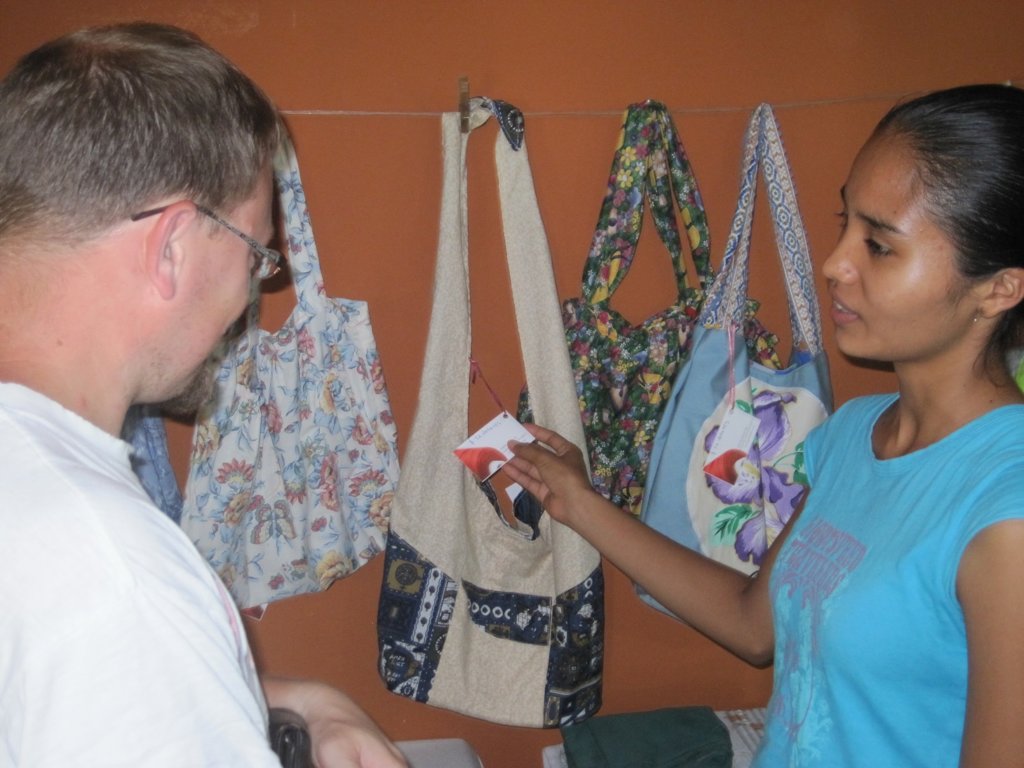 A group of women have formed a cooperative business, sewing commissioned projects for local businesses, school uniforms and community events. Others earn extra income from sewn products sold to tourists and visiting missionaries. The ministry now employs four women to offer initial, free lessons and train new teachers. We teach simple business practices to basic business plans for those interested.The HOPE of financial freedom is being realized as women are trained well, choose to apply self-discipline, and work hard. The culture of Ometepe IS being shaped economically.
A group of women have formed a cooperative business, sewing commissioned projects for local businesses, school uniforms and community events. Others earn extra income from sewn products sold to tourists and visiting missionaries. The ministry now employs four women to offer initial, free lessons and train new teachers. We teach simple business practices to basic business plans for those interested.The HOPE of financial freedom is being realized as women are trained well, choose to apply self-discipline, and work hard. The culture of Ometepe IS being shaped economically.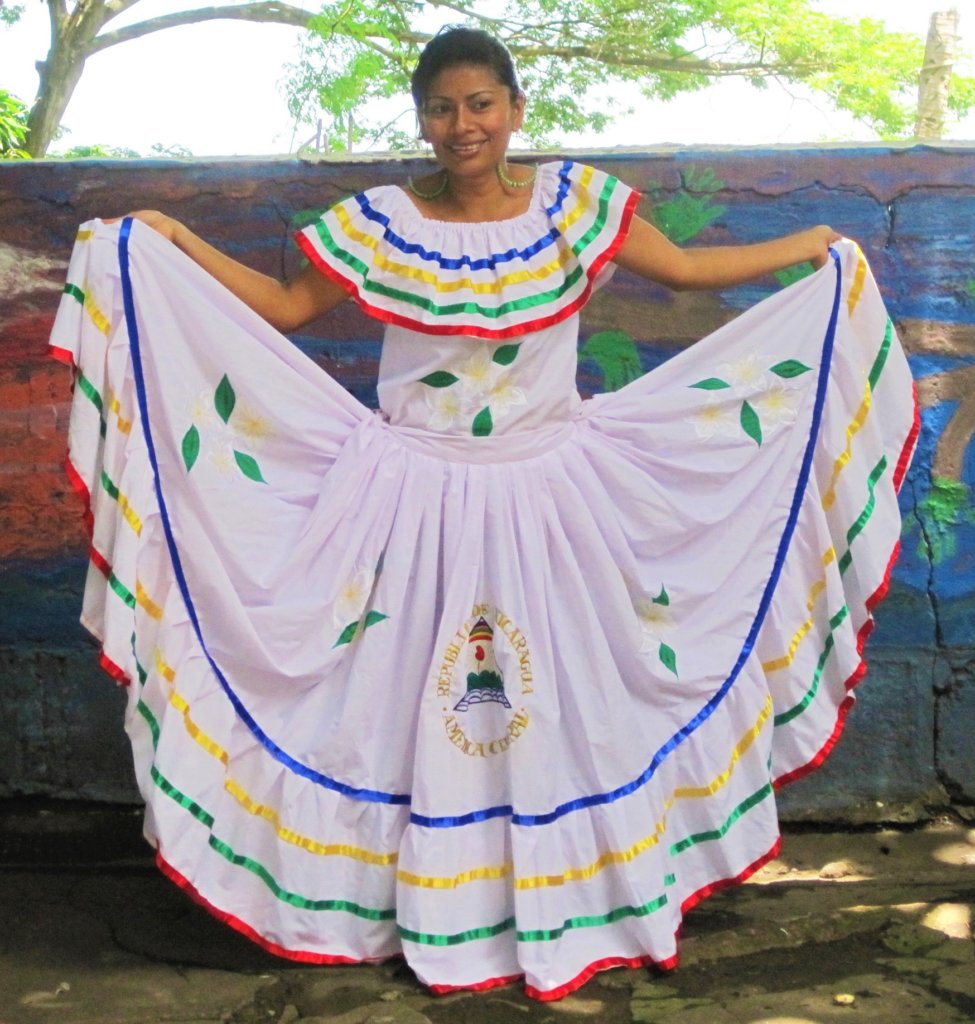
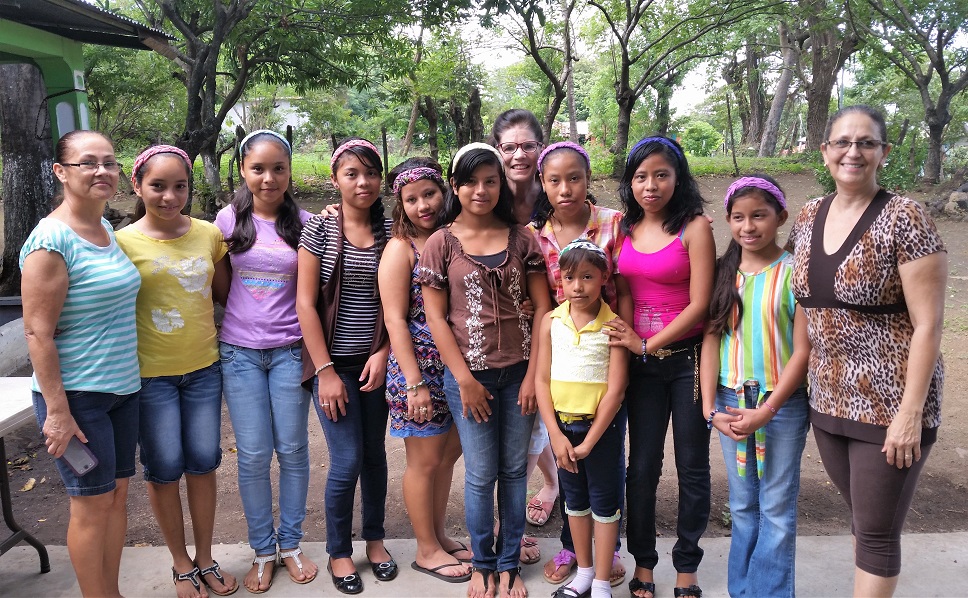 God calls us to WORK and serve WITH him. We labor with Him as His Ambassadors (2 Cor. 5:20). We speak His words and serve in His strength (1 Pet 4:11) to accomplish His purposes. Like a family business that could be named “Heaven-Coming-To-Earth”, God desires ALL of his family to work together with Him on His business to bring heaven to earth! We invite you to work with us. Work with your prayers for he influence of Threads of Hope on Island of Ometepe, WORK with your donations of machines and fabric, WORK with your money towards our efforts, WORK with your donations of time, skills and talents that would help sharpen this ministry “tool”.
God calls us to WORK and serve WITH him. We labor with Him as His Ambassadors (2 Cor. 5:20). We speak His words and serve in His strength (1 Pet 4:11) to accomplish His purposes. Like a family business that could be named “Heaven-Coming-To-Earth”, God desires ALL of his family to work together with Him on His business to bring heaven to earth! We invite you to work with us. Work with your prayers for he influence of Threads of Hope on Island of Ometepe, WORK with your donations of machines and fabric, WORK with your money towards our efforts, WORK with your donations of time, skills and talents that would help sharpen this ministry “tool”.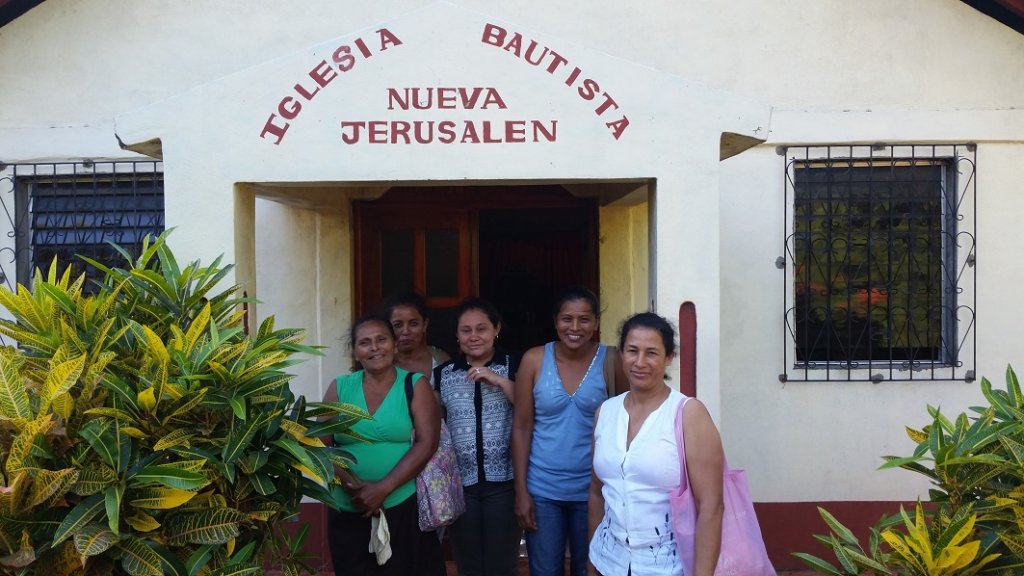 Together, we will please God, creating His culture on earth as it is in heaven because HOPE RULES and HOPE IS REIGNING in our world today!
Together, we will please God, creating His culture on earth as it is in heaven because HOPE RULES and HOPE IS REIGNING in our world today!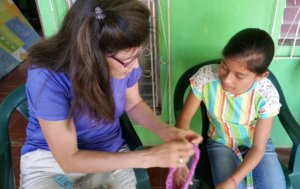 Terri recently returned from a trip to Nicaragua, and has given us a fresh update from the field. It is uplifting reading, especially during this Easter season, reminding us of the transforming power available to those who embrace and believe in the resurrected Jesus Christ!
Terri recently returned from a trip to Nicaragua, and has given us a fresh update from the field. It is uplifting reading, especially during this Easter season, reminding us of the transforming power available to those who embrace and believe in the resurrected Jesus Christ!
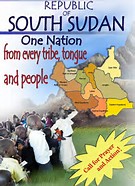 When South Sudan gained independence from Sudan proper on July 9, 2011, a forty year old armed conflict which had raged between the Muslim-backed Arab government in Northern Sudan, and the predominantly Christian Africans in Southern Sudan, ended. During this war, approx. 2 million people had been killed and 5 million displaced as refugees into the neighboring countries.
When South Sudan gained independence from Sudan proper on July 9, 2011, a forty year old armed conflict which had raged between the Muslim-backed Arab government in Northern Sudan, and the predominantly Christian Africans in Southern Sudan, ended. During this war, approx. 2 million people had been killed and 5 million displaced as refugees into the neighboring countries. 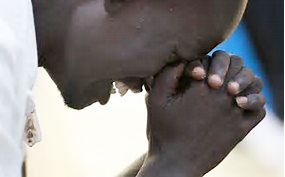 It set off a cycle of retaliatory killings which have split the poverty-stricken country along ethnic lines, causing hundreds of thousands to flee. A fragile peace agreement was finally established, for again to be broken in July 2016. Last year alone, some 489,000 South Sudanese refugees fled to Uganda. The refugee settlement Bidibidi in northern Uganda, opened less than six months ago, is already one of the world’s largest refugee camps. It currently houses over 270,000 South Sudanese.
It set off a cycle of retaliatory killings which have split the poverty-stricken country along ethnic lines, causing hundreds of thousands to flee. A fragile peace agreement was finally established, for again to be broken in July 2016. Last year alone, some 489,000 South Sudanese refugees fled to Uganda. The refugee settlement Bidibidi in northern Uganda, opened less than six months ago, is already one of the world’s largest refugee camps. It currently houses over 270,000 South Sudanese.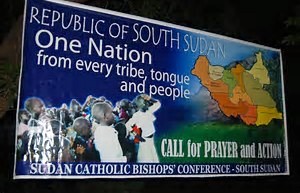 South Sudan’s Catholic Archbishop Paulino Lokudu Loro presided over Friday’s National Day of Prayer. He declared the government must choose between peace, unity, reconciliation and justice over rapes, killings and arbitrary arrests. He urged President Salva Kiir to “go pray alone in a room for peace in the country”.
South Sudan’s Catholic Archbishop Paulino Lokudu Loro presided over Friday’s National Day of Prayer. He declared the government must choose between peace, unity, reconciliation and justice over rapes, killings and arbitrary arrests. He urged President Salva Kiir to “go pray alone in a room for peace in the country”. 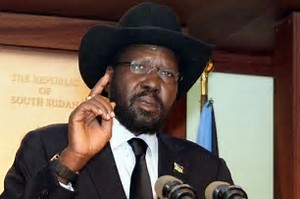 The South Sudanese President, Kiir called delivered his own prayer before the crowd, asking for divine forgiveness.
The South Sudanese President, Kiir called delivered his own prayer before the crowd, asking for divine forgiveness.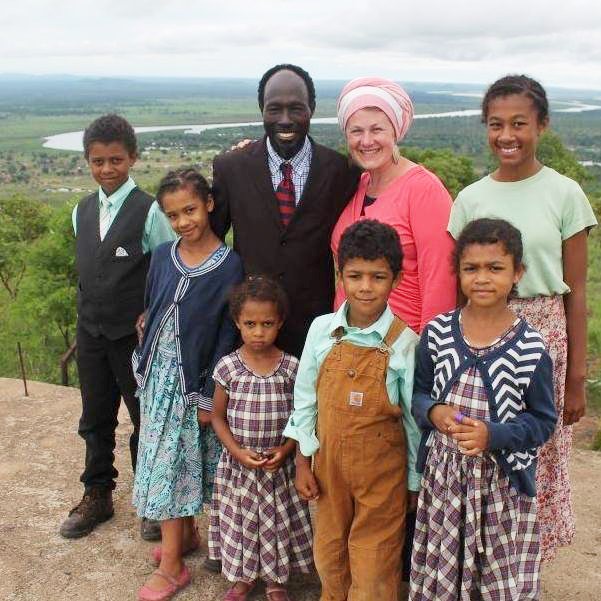 “In light of the current Crisis in South Sudan, I’m counting on your support and networking for a time of National Prayer, Repentance and Forgiveness in Juba, South Sudan, March 26th-27th, 2017. This event will resonate with the National Peace and Reconciliation Initiative proposed by President Kiir.
“In light of the current Crisis in South Sudan, I’m counting on your support and networking for a time of National Prayer, Repentance and Forgiveness in Juba, South Sudan, March 26th-27th, 2017. This event will resonate with the National Peace and Reconciliation Initiative proposed by President Kiir.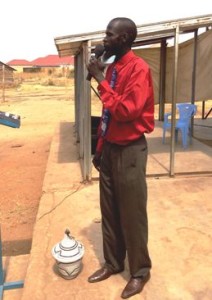 I met Matthew Deng Dut for the first time in 2008 in Tel Aviv, Israel. He was among the 1100 South Sudanese who had fled atrocities in Sudan and Egypt to find refuge in Israel. I visited his church, Elohim Shalom Ministry, which he had established among his fellow refugees there.
I met Matthew Deng Dut for the first time in 2008 in Tel Aviv, Israel. He was among the 1100 South Sudanese who had fled atrocities in Sudan and Egypt to find refuge in Israel. I visited his church, Elohim Shalom Ministry, which he had established among his fellow refugees there.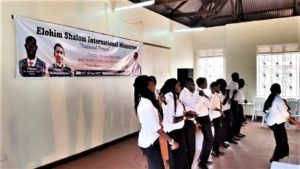 After returning to South Sudan in 2012, Matthew and his fellowship settled in the outskirts of Juba where he continues to pastor his flock. He has survived three severe malaria attacks, was robbed of all his possessions, and keeps on serving his people through a four year brutal, internal civil war, during which many of his church members have fled. In spite of the insurmountable problems he and his people face daily, Matthew refuses to give up, he has remained faithful to his call to seek reconciliation, and stands on Jesus’ promise in Matthew 5:9, “Blessed are the Peacemakers, for they shall be called Children of God.” His message is clear: Lasting peace only comes through The Prince of Peace!
After returning to South Sudan in 2012, Matthew and his fellowship settled in the outskirts of Juba where he continues to pastor his flock. He has survived three severe malaria attacks, was robbed of all his possessions, and keeps on serving his people through a four year brutal, internal civil war, during which many of his church members have fled. In spite of the insurmountable problems he and his people face daily, Matthew refuses to give up, he has remained faithful to his call to seek reconciliation, and stands on Jesus’ promise in Matthew 5:9, “Blessed are the Peacemakers, for they shall be called Children of God.” His message is clear: Lasting peace only comes through The Prince of Peace!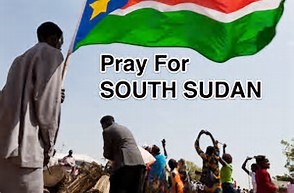 In May, Matthew and his fellowship, Elohim Shalom International Ministries, will also gather city– and region wide churches and church leaders and government officials to a Day of Prayer, Repentance, and Reconciliation on behalf od their country, government, and people. WOULD YOU PRAY AND HELP HIM FINANCE THIS EVENT?
In May, Matthew and his fellowship, Elohim Shalom International Ministries, will also gather city– and region wide churches and church leaders and government officials to a Day of Prayer, Repentance, and Reconciliation on behalf od their country, government, and people. WOULD YOU PRAY AND HELP HIM FINANCE THIS EVENT?